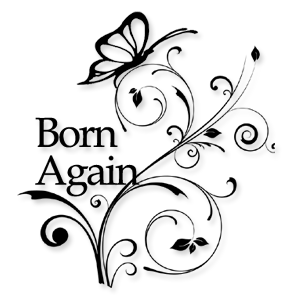
The Beginnings
What Can Save Us

In the Old Testament, the people discovered the harsh truth that they could not coexist in the way God intended. At one point, the abuse and wars became so extreme that the Israelites were enslaved by the Egyptians. In their despair, they cried out to God for salvation. In response, God descended in a cloud to dwell among them and free them from slavery, but He needed them to learn a crucial lesson: religion cannot save us.
Humanity constantly struggles to surrender its independence, always craving control and resisting full surrender to God. We may reach a point where we seek God's help, but often, we still try to maintain our autonomy. We want God's assistance, but on our own terms. The Israelites were no different—they longed to be freed from slavery and escape the harshness of the world. What they truly wanted was for God to transform the world into a better place where they could live happily ever after, without facing the challenges of surrendering their independence.
God needed them to realize that as long as their fallen nature persisted, they could never experience true peace. He required them to let go of their self-sufficiency and allow Him to give them a new spirit. The perfect God came and dwelt among them, exposing their sinful nature by showing them that the only way to live in holiness was through perfection. If they could live perfectly with God, they would prove they could live perfectly with one another. To demonstrate what perfection required, God gave them rules and laws to follow. When they inevitably failed, He required animal sacrifices to show them the gravity of sin—that it leads to death. His purpose was to exhaust humanity’s reliance on self-effort, which is what religion often promotes. Through this process, they would realize they could never be perfect, and in that moment, surrender to God and seek a new spirit from Him.
Sin: A Death Sentence
Sin destroys. It corrodes innocence, purity, love, truth, and goodness. Like cancer, it gradually eats away at life, leading it to death. Sin is like rust, eroding everything of value, slowly decaying what is good until it can no longer stand or function.
This is why God can't simply allow anyone into Heaven, even those who acknowledge His existence. They still carry the old nature that sins and causes division. If God were to permit them into His Kingdom, Heaven would be no different from this world—people still sinning and wrestling against both God and one another. Even Satan knows there is a God, but his nature does not allow him to surrender and give God all the glory.
God needed us to understand that we require a new heart—one that aligns with Him, who is perfect, true, and righteous. We must let go of the world, exhaust ourselves of our old nature, and surrender to Him, allowing God to implant His Spirit within us. In doing so, He would unite those with His Spirit, creating a family rooted in true love and peace, living under His perfection and reflecting His glory.
Many seek spiritual enlightenment or awakening, or use other terms to describe their journey. Yet true spiritual fulfillment doesn't come from searching within, but from ceasing our own striving and allowing God to find us, surrendering ourselves to Him. Only when we connect to His glory do we experience the ultimate spiritual truth—God, the Creator and ruler of the world, the true light of the world. It is then that we truly begin to live, and will live eternally. We become like the branch on the vine, the child with the Father, part of the Heavenly Family, all shining in God's glory.
Some may resist the idea of having God's heart implanted in us, claiming they are content with their own. Yet, this belief reflects a selfishness and a lack of love for others. If our hearts could truly bring peace and build a perfect family, what holds us back? Perhaps it is the nature within us that craves independence, refusing to surrender to the transformative power of God's love.

"But God will redeem my soul from the power of [a]the grave, For He shall receive me. "







